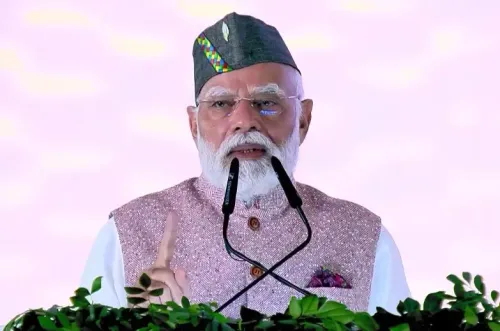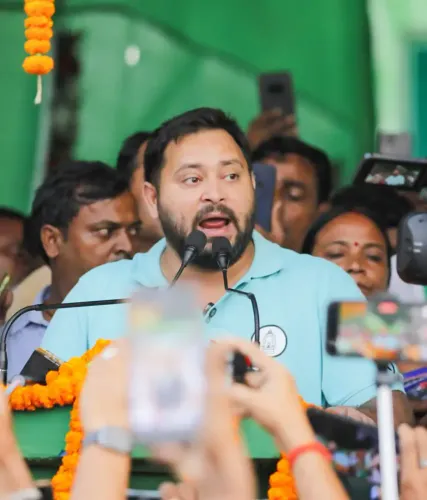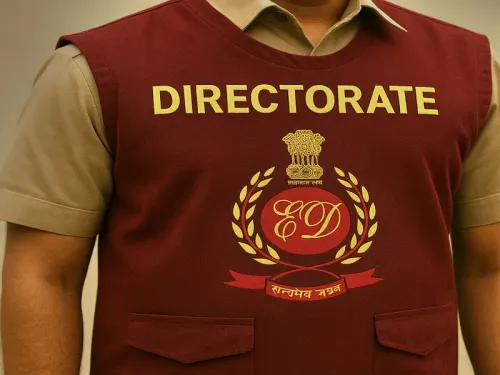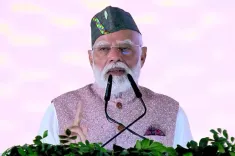What Policies Did the Maha Cabinet Clear for Electric and App-Based Vehicles?
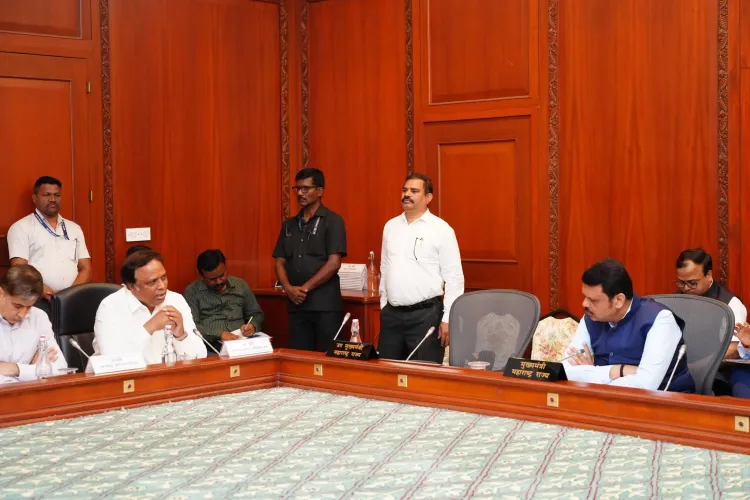
Synopsis
Key Takeaways
- Maharashtra Electric Vehicle Policy to last until 2030.
- Investment of Rs 1,993 crore for implementation.
- Tax exemptions for all electric vehicles.
- Discounts available on electric vehicle purchases.
- Charging stations every 25 km on highways.
Mumbai, April 29 (ISNS) The Maharashtra state Cabinet, led by Chief Minister Devendra Fadnavis, has officially sanctioned the Maharashtra Electric Vehicle Policy, 2025, which is set to be in effect until 2030.
A funding allocation of Rs 1,993 crore has been approved for the next five years to facilitate the execution of this policy.
The government statement emphasized: “This policy is designed to significantly enhance the manufacturing and adoption of electric vehicles. The development of charging infrastructure alongside the promotion of sustainable and innovative transport solutions will play a crucial role in fostering environmental sustainability, economic growth, and energy security. This initiative is expected to substantially increase the uptake and sales of electric vehicles throughout the state.”
Additionally, the government intends to roll out the Clean Mobility Transition Model aiming to reduce carbon and pollutant emissions, including Greenhouse Gas (GHG) emissions from the transportation sector by 2030.
The policy stipulates that all electric vehicles sold and registered in the state will be exempt from motor vehicle tax and registration certificate or renewal fees.
“To encourage the adoption of electric vehicles, a robust charging infrastructure will be established across the state. Charging stations for electric vehicles will be installed every 25 km along state and national highways,” the statement noted.
Moreover, to promote widespread adoption, financial incentives will be offered on vehicle purchases until 2030.
A 10 percent discount off the original price will be available for electric two-wheelers, three-wheelers, non-transport four-wheelers, and buses operated by state transport undertakings (M3, M4), as well as buses run by private, state, or urban transport agencies.
“For electric three-wheeler cargo vehicles, transport four-wheelers (M1), light cargo four-wheelers, and electric tractors and combine harvesters used in agriculture, a 15 percent discount off the original price will be provided,” according to the government release.
Furthermore, all four-wheeled passenger electric vehicles and buses operating on the Mumbai-Pune Yashwantrao Chavan Expressway, Atal Bihari Vajpayee Sewri-Nhava Sheva Atal Setu, and Hindu Hriday Samrat Balasaheb Thackeray Maharashtra Samruddhi Mahamarg will enjoy total toll exemptions.
“A 50 percent concession will be granted for four-wheeled electric vehicles on other state and national highways under the Public Works Department's jurisdiction,” it added.
In addition, the Cabinet has also approved the policy concerning app-based vehicles in the state. Following the Supreme Court's directives, a committee chaired by retired bureaucrat Sudhir Kumar Srivastava was established to formulate a comprehensive policy for app-based vehicles.
This comprehensive policy is being executed in alignment with the committee's report, the Motor Vehicles Act, and the associated regulations.
To initiate app-based vehicle services, vehicle owners will be required to meet various safety standards to ensure passenger safety. For safety reasons, only women drivers and passengers will be assigned to women passengers opting for ride pooling. Furthermore, applicants for app-based vehicles must adhere to all stipulations of the Information Technology Act, 2000, along with the relevant guidelines.
“For app-based vehicles, the aggregator must maintain an app/website that complies with security standards. Features such as real-time GPS tracking, emergency contact numbers, and driver background checks will be mandatory. Drivers will also undergo training at recognized institutions, and insurance coverage for drivers and co-passengers will be obligatory. A grievance redressal mechanism will be established to ensure swift resolution of issues faced by passengers and drivers. The regulations for implementing the aggregation policy will be published separately,” the government statement concluded.

